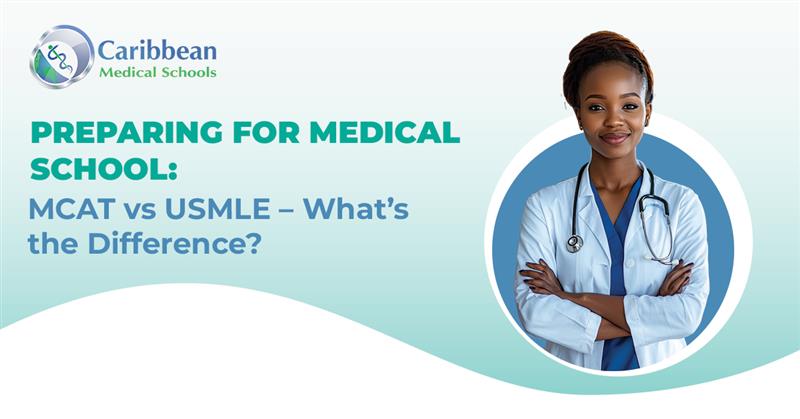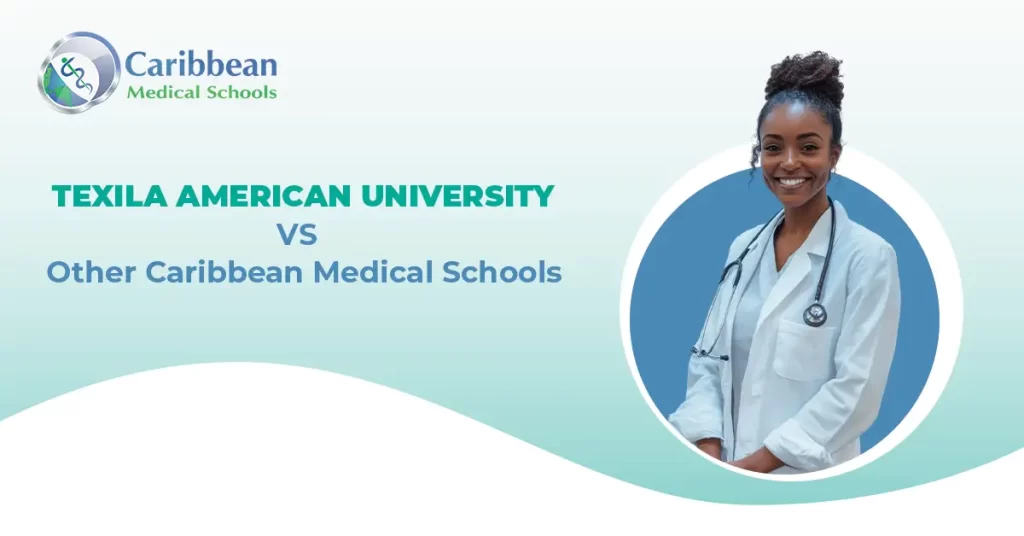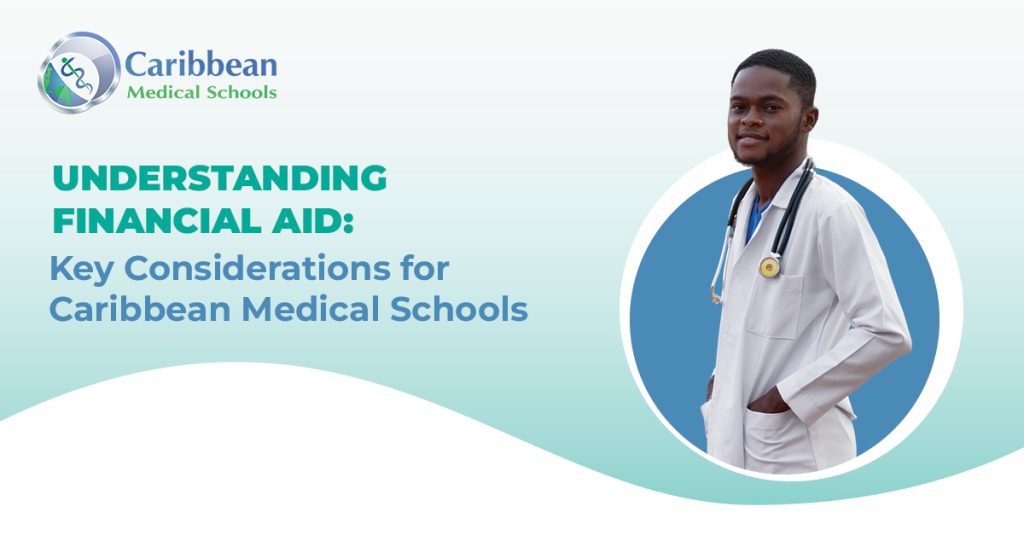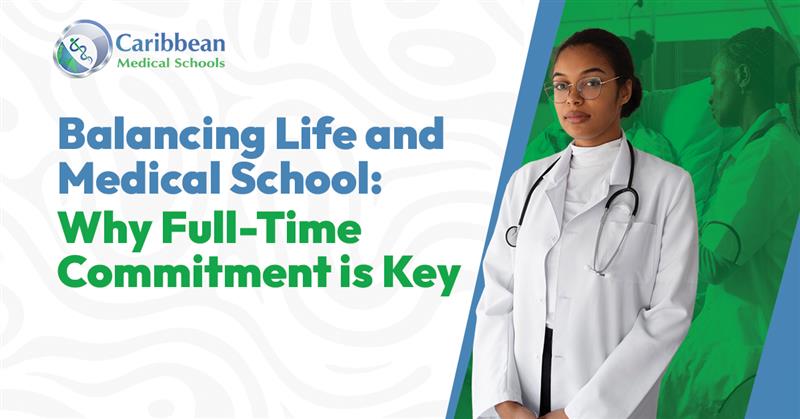Blog Summary
Starting your journey to medical school is both exciting and challenging, especially when navigating essential exams like the MCAT and USMLE. These pivotal tests play distinct roles in your medical education, but understanding their differences is crucial for success. The MCAT vs USMLE comparison often confuses prospective students, as each serves a unique purpose at different stages of your career. The MCAT assesses readiness for medical school, while the USMLE evaluates your clinical knowledge and skills. Let’s delve into their distinctions and guide you step by step.
Table of Contents
What Is the MCAT?
The Medical College Admission Test (MCAT) standardized exam mandatory for admission to the majority of medical schools in the United States and Canada. The MCAT, created to evaluate problem-solving, critical thinking, and understanding of natural, behavioral, and social sciences, serves as a vital milestone for prospective medical students.
Key Features of the MCAT
- Who takes it? Anyone applying to medical schools in the U.S. or other countries that recognize the exam.
- Purpose: Evaluates your readiness for medical school by testing foundational knowledge in biology, chemistry, psychology, and sociology.
- Timing: Typically taken before applying to medical programs.
- Score range: The total score varies between 472 and 528, with the median score typically around 500.
- Structure: Includes four sections:
- Biological and Biochemical Foundations of Living Systems
- Chemical and Physical Foundations of Biological Systems
- Psychological, Social, and Biological Foundations of Behavior
- Critical Analysis and Reasoning Skills (CARS)
The MCAT score is often the first impression you make on admissions committees, so excelling in it can open doors to top medical schools worldwide, including those known for their accessibility and quality programs.
What Is the USMLE?
The US Medical Licensing Examination (USMLE) is a three-step exam required for obtaining a medical license in the U.S. This exam evaluates whether a medical student or graduate can apply their knowledge and skills in a clinical setting.
Key Features of the USMLE
- Who takes it? Medical students and graduates, including those from local and international medical schools, who wish to practice medicine in the U.S.
- Purpose: Tests clinical knowledge and patient care readiness.
- Timing: Taken during medical school or after graduation, depending on the stage:
- Step 1: Taken after preclinical years, focusing on foundational sciences.
- Step 2 (CK and CS): Taken during clinical years, testing clinical knowledge (CK) and clinical skills (CS).
- Step 3: Taken after earning an M.D., assessing whether you can independently provide medical care.
Scoring well on the USMLE is crucial for securing residency placements in the U.S., making it a critical milestone for international medical students who plan to practice stateside.
Key Differences Between the MCAT and USMLE
| Feature | MCAT | USMLE |
| Purpose | Admission to medical schools | Licensing to practice medicine |
| When to Take It | Before applying to medical programs | During or after medical school |
| Subjects Covered | Pre-med sciences, critical reasoning | Clinical knowledge, patient care |
| Score Usage | Evaluates potential for medical school admission | Assesses readiness for medical licensing |
| Test Structure | Multiple-choice, four sections | Multiple-choice and clinical simulations |
How Do the Exams Fit Into Your Medical Journey?
Understanding the role of these exams is crucial for charting your path toward becoming a doctor. If you’re considering studying at Caribbean medical schools, the MCAT is often your first step. Many Caribbean schools provide excellent support for students preparing for both the MCAT and USMLE. According to the Association of American Medical Colleges (AAMC), the average MCAT score for students who matriculated to medical school in 2021–2022 was 511.
Once you’re in medical school, your focus shifts to passing the USMLE. Caribbean medical schools often provide comprehensive USMLE preparation, ensuring students meet the standards for U.S. medical licensing. A study published in Medical Education Online found that MCAT scores are predictive of student performance on the USMLE exams, though the effect sizes are small.
Which Exam Should You Focus on First?
For aspiring medical students, the MCAT is the immediate priority. Without it, you can’t get into medical schools, including top international medical schools or local medical schools. However, keep in mind that success in the MCAT lays a solid foundation for excelling in the USMLE later.
If you’re eyeing programs in the Caribbean, applying to caribbean medical schools often comes with guidance on managing both exams. These schools offer tailored curricula that integrate USMLE-focused content early in your medical education.
Why Are the MCAT and USMLE Important?
- For Admission: The MCAT showcases your academic potential to admissions committees. Programs, including best universities for medical field, use MCAT scores to assess your readiness.
- For Licensing: The USMLE ensures you’re prepared to practice medicine safely and effectively.
By understanding these exams, you can strategically plan your path, whether you aim to study in the U.S. or choose medicine in caribbean islands as your stepping stone.
Tips for Preparing for Each Exam
Tips for the MCAT
- Start Early: Begin your prep at least 6-12 months before the test.
- Focus on Weak Areas: Identify sections where you struggle and allocate extra time.
- Use Quality Study Materials: Invest in trusted prep books and courses.
- Practice Tests: Take full-length tests to simulate real exam conditions.
- Stay Consistent: Regular study sessions yield better results than last-minute cramming.
Tips for the USMLE
- Understand the Format: Familiarize yourself with each step of the USMLE.
- Clinical Exposure: Gain hands-on experience during your rotations.
- Integrated Learning: Use resources like UWorld or Kaplan for integrated preparation.
- Stay Organized: Create a study schedule that aligns with your medical school curriculum.
- Seek Guidance: Many medical schools offer mentorship programs for USMLE prep.
The Role of Caribbean Medical Schools
Studying in the Caribbean is a popular choice for many aspiring doctors. International programs often provide:
- High-quality education.
- Focused preparation for both the MCAT and USMLE.
- Access to clinical rotations in the U.S., paving the way for residency placements.
Whether you’re considering caribbean schools or best schools for medical field, it’s essential to choose a program that aligns with your goals.
Conclusion
The MCAT vs USMLE comparison underscores their distinct yet complementary roles in a medical student’s journey. The MCAT helps you get into medical schools, while the USMLE ensures you’re ready to practice. Both exams are milestones in the rewarding path of becoming a doctor, and with the right preparation, you can excel in both.
Choosing the right school can make all the difference. These institutions offer the perfect blend of education, clinical exposure, and exam preparation to help you succeed.











